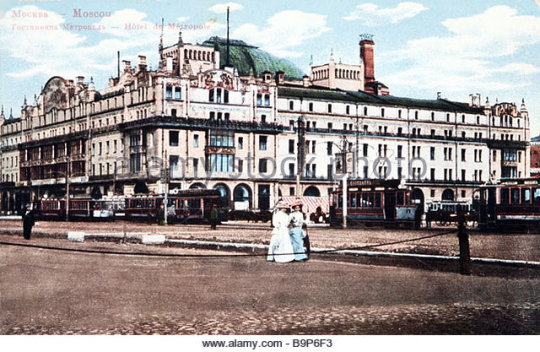
I can't believe that "Days Without End" by Sebastian Barry has been already knocked off the top spot for this year's best reads, and having enthused about that book I don't know how to describe the overwhelming delight I had from reading "A Gentleman in Moscow. It was a feast of a book, like a meal with a succession of mouthwatering dishes, superb wines, wonderful company and briliant conversation. The gentleman in question is Count Alexander Ilych Rostov who is a resident in The Metropol, the most prestigious hotel in Moscow. As a member of the aristocracy in 1922, he no longer has a place in post-revolutionary Russia, but instead of being shot, or given a one way ticket to Siberia, he is made a non-person and sentenced to house arrest back at the Metropol, no longer in his palatial suite however, but up in a tiny attic room. If you know Charlie Mortdecai from the Bonfiglio books, or have seen "The Grand Budapest Hotel", you get an idea of the flavour of this book. Early on we have these lines:
”After all, what can a first impression tell us about someone we’ve just met for a minute in the lobby of the hotel? For that matter, what can a first impression tell us about anyone? Why, no more than a chord can tell us about Beethoven or a brushstroke about Botticelli. By their very nature, human beings are so capricious, so complex, so delightfully contradictory, that they deserve not only our consideration, but our reconsideration--and our unwavering determination to withhold our opinion until we have engaged with them in every possible setting at every possible hour.”

The book progress from 1922 through to 1954 and we meet many engaging characters en route, including, the chef, the concierge and the seamstress, Russian officials, visiting Americans, a beautiful actress, and two precocious young girls who grow to adulthood, and play a key role in the story. One of them, at the age of 9 decides she needs to compile a list of the Prime Numbers and test Galileo's ideas about falling objects. The other plays the Count at a game they call "Zut", in which you have to name members of a category e.g the uses of wax or things that come in fours. There is poetry, philosophy and humour with the unexpected lurking at the turn of the page, all set down in masterful prose. You are taken on a journey where the journey is more important than the destination, although the final destination seals the perfection of the book.







